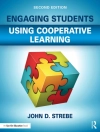Malinowski’s Argonauts of the Western Pacific was a major contribution to anthropological theory and method, while simultaneously establishing the sub-field of economic anthropology. Even a century after its publication, Malinowski’s pioneering work remains critical for anthropology in a postcolonial age. This volume uses ethnographic studies from around the world to contextualize the work politically and intellectually, examining its gestation and influence from multiple perspectives. It critically explores the meaning of “economy” for Malinowski from his formation in the Austro-Hungarian Empire to his path-breaking fieldwork in Melanesia and ensuing career in London.
विषयसूची
List of Illustrations
Introduction: Argonauts Revisited
Chris Hann and Deborah James
Part I: Bronislaw Malinowski and his Argonauts in Context
Chapter 1. Cultural Capital and Economic Stringency: Reality and Myth in Bronisław Malinowski’s Socio-Economic Background
Grażyna Kubica
Chapter 2. Tenerife 1921: The Writing of Argonauts
Michael W. Young
Chapter 3. Malinowski’s New Paradigm
Adam Kuper
Chapter 4. Malinowski and the Politics of Economic Anthropology: Between Imperial Trusteeship and Colonial Trade
Freddy Foks
Part II: Economy, Economics, and Epistemics
Chapter 5. Compulsion to Work? Malinowski and the Labour Question
Rachel E. Smith
Chapter 6. On Tribal and Other Economies
Richard Staley
Chapter 7. Malinowski’s Place in the History of Economic Thought
Chris Gregory
Chapter 8. Can Economic Anthropology Escape from Primitive Economics? Thinking Ethnographically from the Oikos
Benoît de L’Estoile
Part III: Cosmology, History, and Social Organization
Chapter 9. Baloma: The Spirits of the Kula in the Trobriand Islands
Mark S. Mosko
*This chapter is available Open Access under a Creative Commons Attribution-Non Commercial-No Derivatives 4.0 International License (CC BY-NC-ND 4.0) with support from Mark Mosko.
Chapter 10. The Archaeology of the Kula and Malinowski’s Notion of Economy
Hans Steinmüller
Chapter 11. Using Laozi to Interpret the Kula Ring: Rethinking the Dual Chieftainship in Kiriwina
Yongjia Liang
Part IV: Adaptations in Space and Time
Chapter 12. Passing On, Passing Around, and Passing Through: Urban Inheritance in South Africa as Circulation
Maxim Bolt
Chapter 13. The Anthropological Turn in the Sociology of Money
Ariel Wilkis
Chapter 14. The Digital Argonauts of the Western Pacific: From Kula Ring to Bush Internet
Geoffrey Hobbis and Stephanie Ketterer Hobbis
Afterword
Rebecca Empson
Index
लेखक के बारे में
Chris Hann is Emeritus Director at the Max Planck Institute for Social Anthropology (Halle/Saale). His publications include Repatriating Polanyi: Market Society in the Visegrád States (Budapest 2019) and Work, Society, and the Ethical Self: Chimeras of Freedom in the Neoliberal Era (New York/Oxford 2021).












